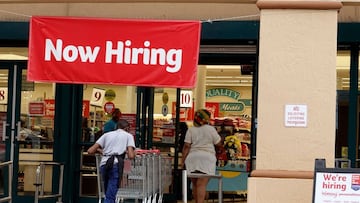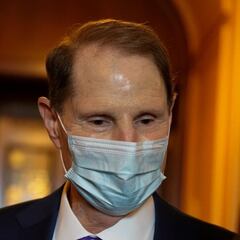What is frictional unemployment? What causes frictional unemployment in the US?
Unemployment is rarely considered a good thing, but having a small pool of out-of-work individuals can be seen as a sign of confidence in the jobs market.


Frictional unemployment is a part of a functioning economy and occurs when an individual is briefly out of work during the period in which they are moving between jobs. Even the most stable, secure jobs market will have some level of voluntary unemployment as people transition between jobs.
Whether they had just left their previous job, or they are new workers readying themselves to enter the workforce, the temporarily out-of-work are considered part of frictional unemployment.
In some ways, a level of frictional unemployment can be seen as a good thing because it suggests that workers are confident that there are jobs out there, and are able to take some time to secure the role or working conditions which suit them.
What are the causes of frictional unemployment?
In general, unemployment increases during a recession because companies are more cautious in their hiring strategies and may be forced to make redundancies. However frictional unemployment often decreases during tough economic times because, with fewer jobs available, people are less willing to leave their current role in the hope of finding something better.
Frictional unemployment is most commonly linked to two key causes:
Imbalance between workers and available jobs – Workers will generally follow a natural career progression throughout their working life, moving into more senior roles as they advance in age. However if there is greater pressure on the more coveted roles then there will likely be an increase in frictional unemployment as individuals wait to find something that suits them.
Dissatisfaction with work conditions – If employees are generally unhappy with salary levels, job responsibilities, commuting time, etc. they may be more likely to leave that role before they have had the chance to find another job.
BREAKING: The number of Americans applying for unemployment benefits fell last week, another sign that the U.S. job market and economy continue their steady recovery. The Labor Department said unemployment claims were down by 38,000 to 326,000. https://t.co/Oi4wcr1Lfg
— The Associated Press (@AP) October 7, 2021
What are the consequences of frictional unemployment?
Having a modest pool of out-of-work individuals (frictional unemployment) can have many benefits for the economy as a whole. The additional workers give businesses a ready-made pool of potential employees, and can give them access to more qualified or better suited workers.
In Missouri, local leaders have stated that an increase in frictional unemployment is a sign of positive economic recovery as the state adds new jobs at a promising rate. Mardy Leathers, the state Director of Workforce Development, described the situation: "We continue to see strong job growth across all sectors, predominantly in construction, but also in healthcare… And a rise now in accommodation food service and hospitality.”
Related stories

What is the unemployment reform proposed by the Democrats $3.5 trillion bill?

Unemployment benefits: How will states return payments to the central government?
However he added that the size of frictional unemployment may also be a consequence of an imbalance between employees and employers, saying: “There's a lot of jobs open, and there's a lot of citizens available to take those jobs, but they're just not making the match.”
There is also the concern that if the frictional unemployed are out of work for too long they may become frustrated with their job hunt and it could lead to a decrease in their productivity. On a larger scale, this could translate in a decline in production across the economy.